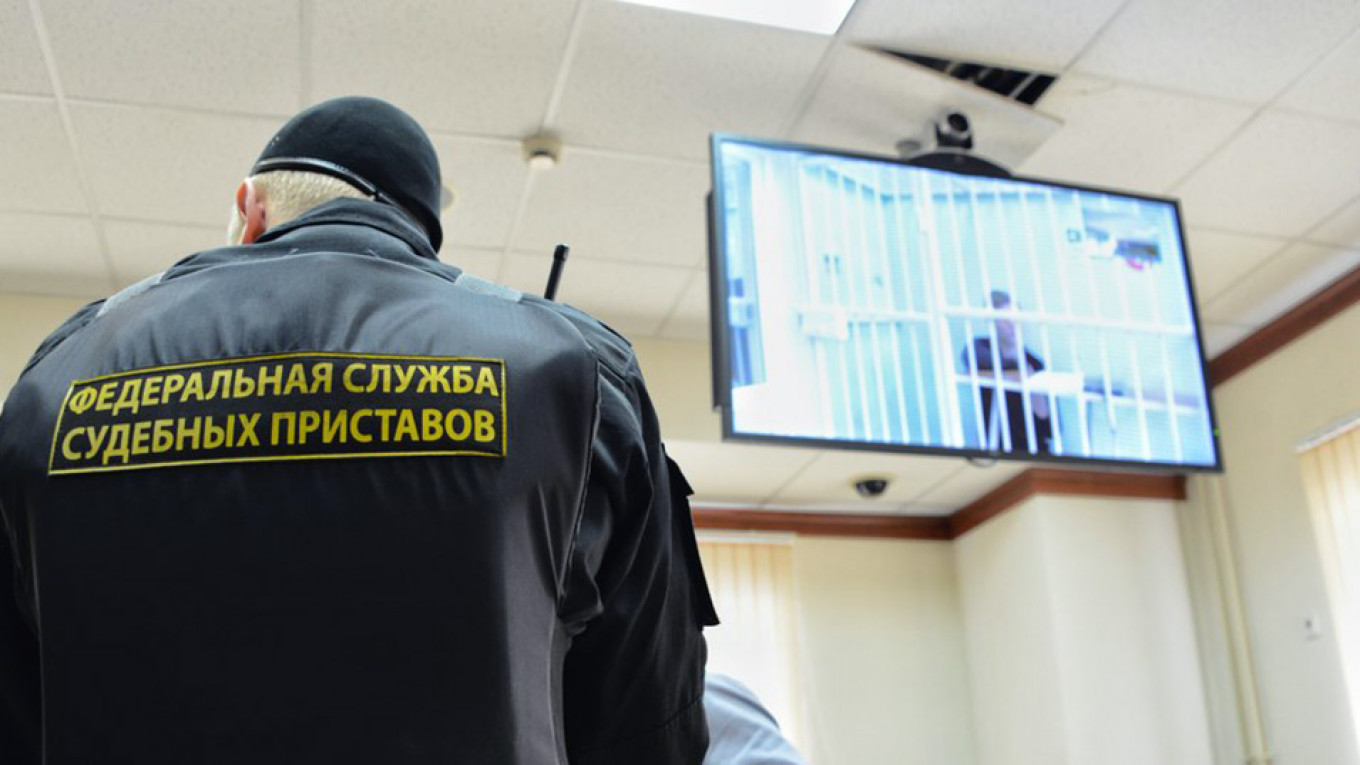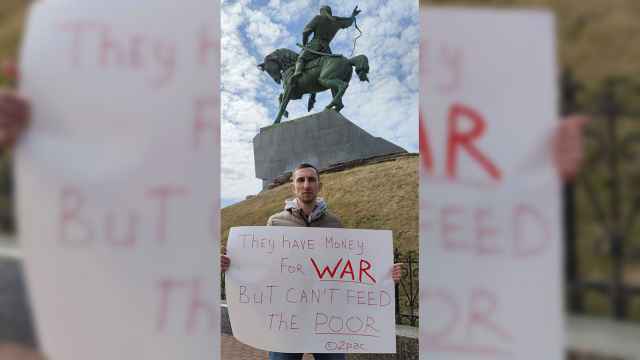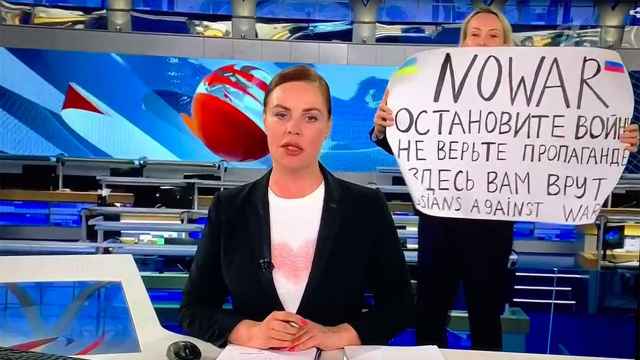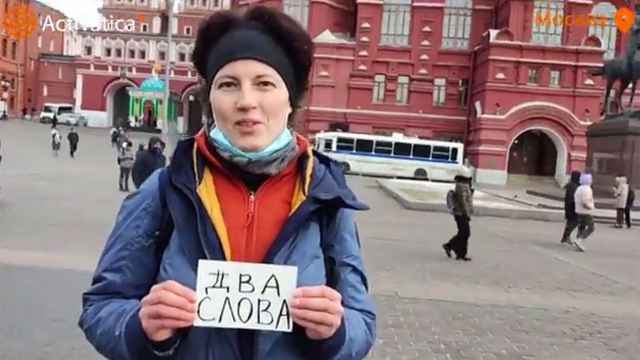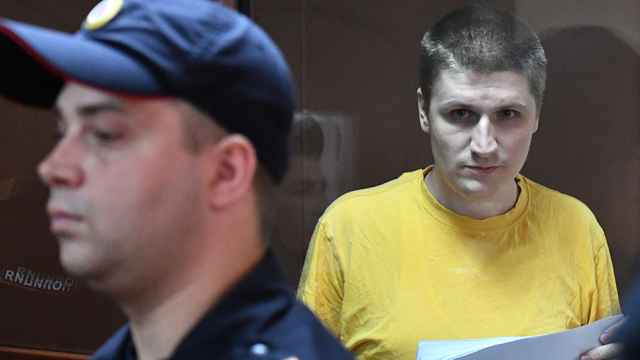When I landed in the United States about a year ago, a border control official asked me the reason for my visit. I told him I was attending a conference on the Russian constitution and Russia’s Constitutional Court. “A constitution? You have a constitution? I thought you just had Mister Putin,” said the official, puzzled.
Many in Russia appear to think the same way. People tend to think it is much more effective to complain to the president, the prosecutor, or the police than to go to court. This mistrust is caused by the Russian courts’ poor record of making sure justice prevails.
A recent defense victory in a case connected generally to public protests illustrates quite well how Russia’s judiciary normally treats public demonstrations.
Un-justice in public demonstrations cases
According to Russian law, it is illegal to participate in unauthorized (even peaceful) demonstrations. Getting a permit for a demonstration is never guaranteed, though. In 2017, in Lashmankin and Others v. Russia, the European Court of Human Rights analyzed Russia’s legislation and practices related to the issuance of demonstration permits and concluded that there was no freedom of assembly in Russia. Russian citizens who participate in an unauthorized rally, as often happens, risk being fined up to 20,000 rubles (about $300) if detained. If a person is caught protesting twice during one year, the fine may go up to 300,000 rubles (about $4,600).
This past summer Moscow protested a lot, mostly in conjunction with the Moscow city council election. As a licensed attorney, I visited those detained at police stations and saw people who took part in demonstrations. I also saw people detained by mistake, such as a Kyrgyz plumber who had left his client’s apartment ten minutes before being apprehended. Or a jogger in sweatpants and red running shoes who resides in central Moscow and was arrested on his way home after a morning run.
I tried to convince the police that those people had been arrested by mistake. “Since the citizens were delivered to the station they will be charged,” an officer responded with a shrug. The courts will restore justice, he tried to console me. But it is never that easy.
Through its program OVD-Info, the historical and human rights society Memorial represented 438 detainees during demonstrations in 2017. This year, following up on the summer’s protest movement, we represented 794 people in court. In 95% of those cases, Moscow courts issued guilty verdicts. In the remaining 5%, the courts sent the files back to the police to correct mistakes in paperwork.
The judges in these cases were not interested in discovering the true story behind the events. Novaya Gazeta, an independent Russian newspaper, compared court decisions in 153 cases of arrests made during the 2019 rallies. The newspaper identified eight templates that thirteen Moscow courts used to issue their rulings. Each ruling copied, word for word, one of the eight templates, with only minor variations, usually limited to the name and address of the person arrested
Judges often refuse to examine pieces of evidence that might prove the defendant’s innocence. On the other hand, they readily accept testimony from policemen even if the testimony is vague or contradictory, citing an adage that officials cannot lie because “they are executing their official duties.”
Why fight?
By now you might be asking yourself, “Why do Russians still fight for their rights in courts?” They fight because in some cases, justice is still possible, despite the constraints outlined above. In my experience, however, these victories are limited to obvious cases where authorities clearly misapplied the law and cases that attract a lot of public attention.
A year ago, in August 2018, Memorial lawyers won such an obvious case concerning a refusal to issue a permit for a demonstration in Moscow on May 2017. According to the law, a person willing to organize a rally must first seek permission by filing an application with the government authorities indicating the desired location and time of the rally. The authorities may deny the application, but they have to propose an alternative place.
In our case, the Moscow authorities denied the application but did not provide an alternative place. This constituted an obvious violation. The lower court, however, upheld the decision of the Moscow authorities. We appealed all the way to the Supreme Court, which finally granted our appeal fifteen months after the proposed date of the demonstration. Of course, by then there was no point in holding the rally.
Cases that attract public attention have better prospects of being adjudicated fairly. On July 27, 2019, Olga and Dmitry Prokazov attended a demonstration in Moscow. They took their one-year-old child with them and at some point passed their son to another participant to hold, apparently to help him pass a police cordon. The authorities decided that the parents had exploited the child and sought a court ruling to terminate their parental rights. A massive public outcry led the court to rule in favor of the parents.
Pavel Ustinov’s case
Pavel Ustinov, a young theater actor, was detained on Aug. 3, 2019, during an unauthorized rally with which Ustinov apparently had nothing to do. Ustinov insisted that he was not even aware of the rally and had gone to Pushkin Square to meet a friend and discuss some work-related issues. Pavel was detained while messaging on his phone: the police assumed he was coordinating the rally. One of the four officers who apprehended the shocked Ustinov sustained a dislocated shoulder in the process.
Pavel was charged with using violence against a police officer, which is punishable by ten years of imprisonment. On Sept. 16, 2019, the Moscow district court found Ustinov guilty and sentenced him to 3.5 years in prison. During his trial, the judge refused to view a video of the arrest. This video, however, was crucial. It clearly showed Pavel caught completely by surprise and not fighting with the policemen. The video went viral and caused outrage over the sentence. Actors (some of whom were fired after voicing support for Pavel), doctors, teachers, and even some high-ranking officials from the governing party United Russia issued statements in support of Ustinov.
After the public outcry, the prosecution suddenly announced that the verdict was extremely harsh, although during the trial it had asked for six years of imprisonment. The appeals court examined the video of the arrest and amended the verdict. It sentenced Pavel to one year of a suspended sentence. Although the actor was not completely cleared of criminal charges (which in itself is a major injustice), the Russian public took it as an important victory.
As a person, of course, I am happy that Ustinov was spared 3.5 years in prison. As a human rights lawyer I deplore that a happy ending in prosecutions of innocent people in Russia is possible only in exceptionally high-profile cases that attract national scrutiny and thus force Russia’s law enforcement system to retreat.
This article was originally published by the Wilson Center.
A Message from The Moscow Times:
Dear readers,
We are facing unprecedented challenges. Russia's Prosecutor General's Office has designated The Moscow Times as an "undesirable" organization, criminalizing our work and putting our staff at risk of prosecution. This follows our earlier unjust labeling as a "foreign agent."
These actions are direct attempts to silence independent journalism in Russia. The authorities claim our work "discredits the decisions of the Russian leadership." We see things differently: we strive to provide accurate, unbiased reporting on Russia.
We, the journalists of The Moscow Times, refuse to be silenced. But to continue our work, we need your help.
Your support, no matter how small, makes a world of difference. If you can, please support us monthly starting from just $2. It's quick to set up, and every contribution makes a significant impact.
By supporting The Moscow Times, you're defending open, independent journalism in the face of repression. Thank you for standing with us.
Remind me later.



